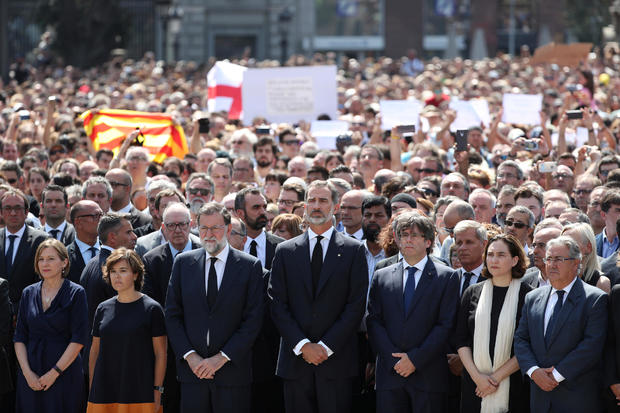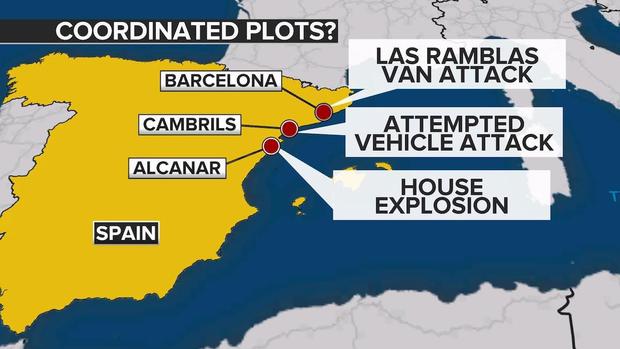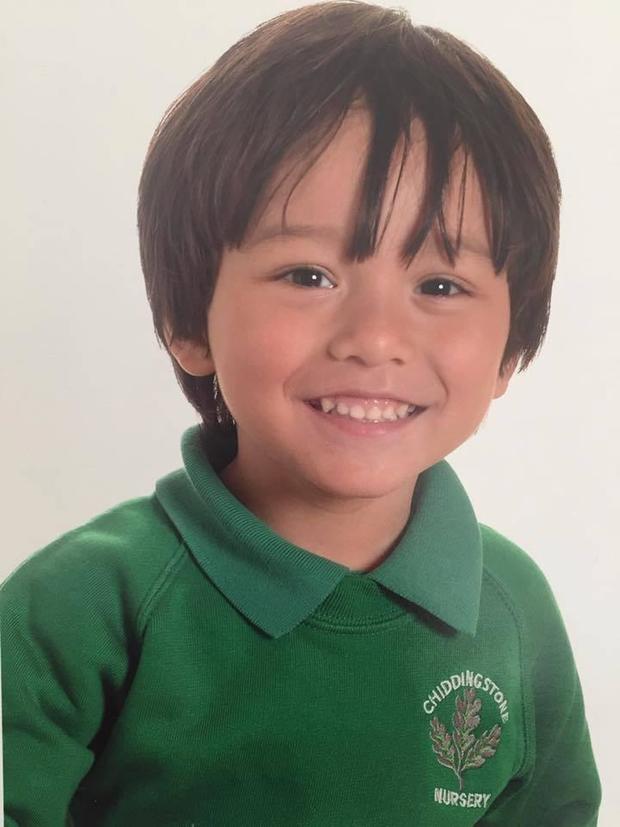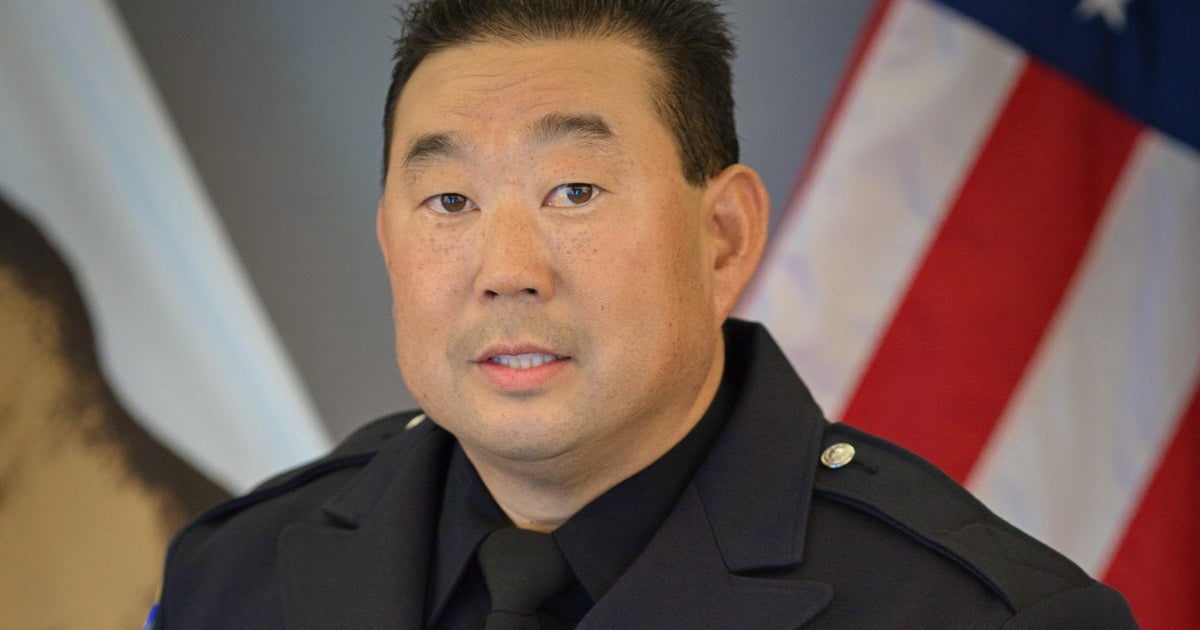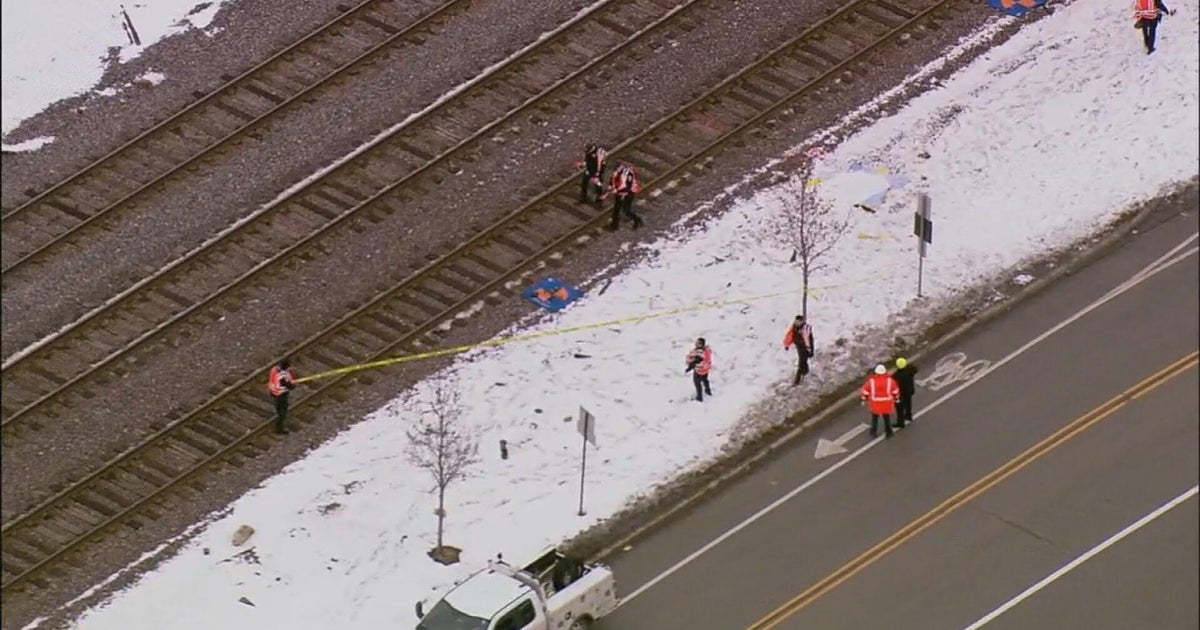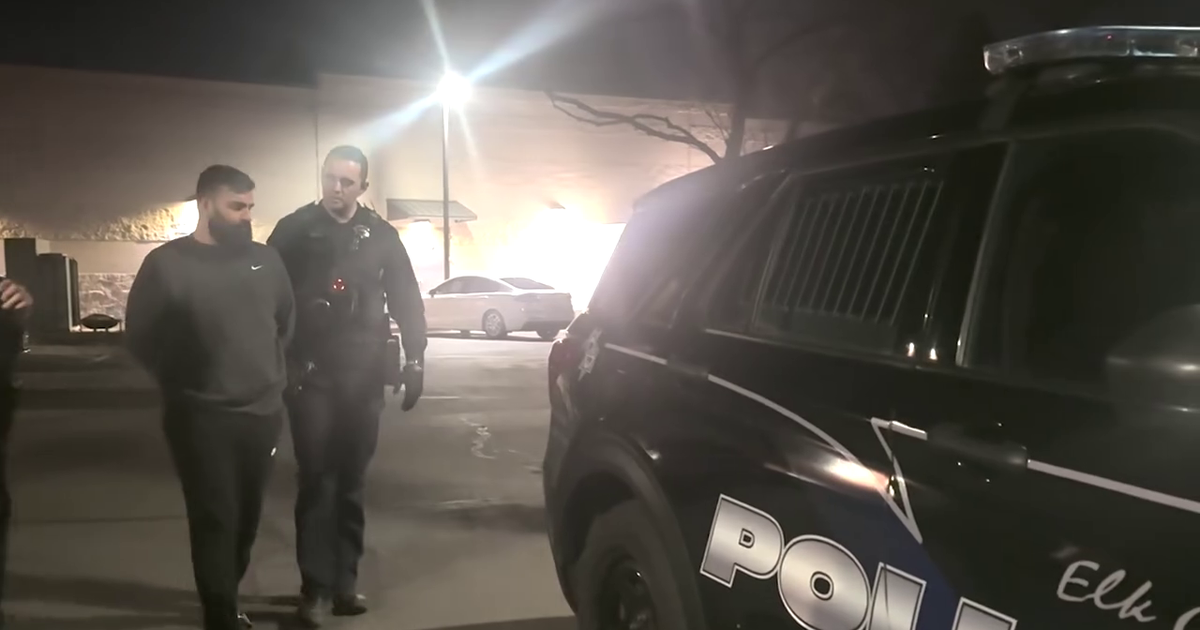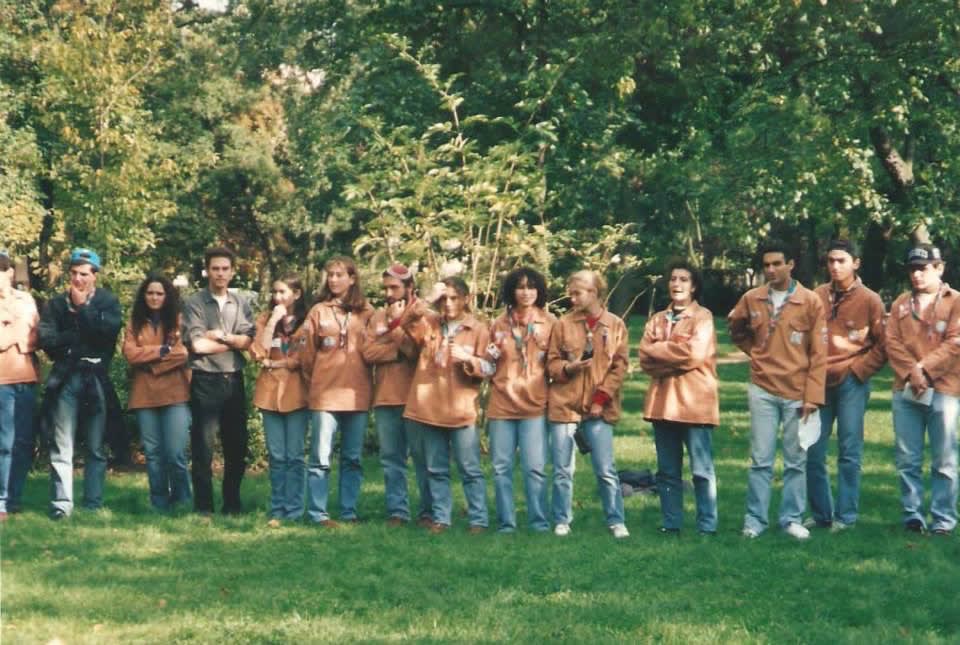Police: Five suspects killed in Spanish resort hours after Barcelona attack
BARCELONA, Spain -- Police fatally shot five people wearing fake explosive belts who staged a car attack at a seaside resort in Spain's Catalonia region on Friday, just hours after a van plowed into pedestrians on a busy Barcelona promenade. The attack in Barcelona left 14 dead and more than 100 wounded.
U.S. law enforcement officials tell CBS News there is intelligence that indicates the Barcelona attack was more than just an ISIS-inspired attack.
CBS News national security analyst Fran Townsend says the attack looks like it was "much more directly controlled than merely inspired."
"As you look at the chronology, this was a fairly large cell, had to have been in place for a while -- pretty good planning," Townsend said on "CBS This Morning." "You had the house that blew up when they failed to put together these gas canisters -- probably for a car bomb. Then you had the tragic sort of seven-block rage of this car killing 14. You also had in Cambrils last night another car attack."
Authorities said the back-to-back vehicle attacks -- as well as an explosion earlier this week elsewhere in Catalonia -- were connected and the work of a large terrorist group. Three people were arrested, but the driver of the van used in the Barcelona attack remained at large and the manhunt intensified for the perpetrators of the latest European rampage claimed by the Islamic State of Iraq and Syria (ISIS).
Catalan police later announced that they arrested a fourth suspect, but it was unclear if the driver was in custody.
Amid heavy security, Barcelona tried to move forward Friday, with its iconic Las Ramblas promenade quietly reopening to the public and King Felipe VI and Prime Minister Mariano Rajoy joining thousands of residents and visitors in observing a minute of silence in the city's main square.
Hundreds chanted "I am not afraid" in open defiance of Thursday's attack, CBS News correspondent Debora Patta reports.
Native New Yorker Alex Luque was at the scene when the van plowed into pedestrians.
"Within seconds, it was panic," Luque recalled. "Upon impact, you just start seeing bodies and you start seeing people sprinting. You could tell that was the definition of fear."
Authorities were still reeling from Thursday's Barcelona attack when police in the popular seaside town of Cambrils, about 130 kilometers, or nearly 80 miles, to the south, fatally shot five people near the town's boardwalk who had plowed into a group of tourists and locals with their blue Audi 3. Catalonia's interior minister, Joaquim Forn, told Onda Cero radio they were wearing fake bomb belts.
One woman died Friday from her injuries, Catalan police said on Twitter. Five others were injured.
Cambrils Mayor Cami Mendoza said the town had taken precautions after the Barcelona attack, but that the suspects had centered their assault on the narrow path to the boardwalk, which is usually packed with locals and tourists late into the evening.
"We were on a terrace, like many others," said bystander Jose Antonio Saez. "We heard the crash and intense gun shots, then the dead bodies on the floor, shot by the police. They had what looked like explosive belts on."
The Audi and a damaged police car were towed from the scene Friday.
The Cambrils attack came hours after a white van veered onto Barcelona's picturesque Las Ramblas promenade and mowed down pedestrians, zig-zagging down the strip packed with locals and tourists from around the world.
Forn, told local radio RAC1 the Cambrils attack "follows the same trail. There is a connection."
He told Onda Cero that the Cambrils and Barcelona attacks were being investigated together, as well as a Wednesday night explosion in the town of Alcanar in which one person was killed.
"We are not talking about a group of one or two people, but rather a numerous group," he said.
Forn also suggested a possible connection to an incident Thursday in which the driver of a Ford Focus plowed through a police checkpoint leaving Barcelona after the attack, injuring two police officers. The driver was killed. Police initially said there was no connection to the Barcelona carnage, but Forn said an investigation was under way.
"There is a possibility (of a connection), but it is not confirmed," he said.
The Barcelona attack at the peak of Spain's tourist season left victims sprawled across the street, spattered with blood and writhing in pain from broken limbs. Others were ushered inside shops by officers with their guns drawn or fled in panic, screaming and carrying young children in their arms.
"It was clearly a terror attack, intended to kill as many people as possible," Josep Lluis Trapero, a senior police official for Spain's Catalonia region told reporters late Thursday.
ISIS claimed responsibility, saying in a statement on its Aamaq news agency that the attack was carried out by "soldiers of the Islamic State" in response to the extremist group's calls for followers to target countries participating in the coalition trying to drive it from Syria and Iraq.
Others described scenes of panic, and found safety inside bars and restaurants until police had secured the area.
Local resident Markel Artabe said he was heading to the seafront to get an ice cream when he heard the shots.
"We began to run. We saw one person lying on the pavement with a shot in his head then 20-30 meters further on we saw two more people, who must have been terrorists as they had explosive belts around them. We were worried so we hid."
A third Barcelona suspect was arrested Friday in the northern town of Ripoll, where one of the two detained on Thursday had also been nabbed. The third arrest was made in Alcanar, where the gas explosion in a house was being investigated.
The Reuters news agency reports, citing an unnamed judicial source, authorities investigating both attacks believe there may have been a cell of eight people involved, and that the group planned to use butane gas canisters.
"There could be more people in Ripoll connected to the group," Forn told TV3 television, adding that police were focusing their investigation on identifying the five dead in Cambrils as well as the driver of the Barcelona van.
Police said the two suspects arrested Thursday were a Spanish national from Melilla, a Spanish-run Mediterranean seafront enclave in North Africa, and the other a Moroccan.
Spanish public broadcaster RTVE and other news outlets named one of the detained as Driss Oukabir, a French citizen of Moroccan origin. RTVE reported said Oukabir went to police in Ripoll to report that his identity documents had been stolen. Various Spanish media said the IDs with his name were found in the attack van and that he claimed his brother might have stolen them.
Media outlets ran photographs of Oukabir they said police had issued to identify one of the suspects. The regional police told The Associated Press that they had not distributed the photograph. They refused to say if he was one of the two detained.
The driver, however, remained at large.
"We don't know if the driver is still in Barcelona or not, or what direction he fled in," Forn, the Catalan interior minister, told SER Radio. "We had local police on the scene, but we were unable to shoot him, as the Ramblas were packed with people."
The victims -- both deceased and wounded -- were of 34 different nationalities, Spanish emergency services announced Friday.
At least 13 German citizens were injured, German Foreign Ministry spokesman Martin Schaefer told reporters in Berlin on Friday. He said that some of the wounded were fighting for their lives" but could not confirm any deaths.
French officials said 26 French nationals were among those hurt, with at least 11 seriously injured.
Australia said four of its citizens were injured and one unaccounted for, BBC News reports.
The grandfather of a 7-year-old Australian boy, Julian Cadman, said his grandson went missing after becoming separated from his mother, who was wounded in the Las Ramblas attack.
"We have found Jom (my daughter in law) and she is serious but stable condition in hospital," the boy's grandfather, Tony Cadman, wrote on Facebook. "Julian is 7 years old and was out with Jom when they were separated, due to the recent terrorist activity. Please share if you have family or friends in Barcelona."
One of the dead was Belgian, and Australia's Foreign Minister Julie Bishop told reporters: "We are concerned for one Australian who remains unaccounted for."
Two with slight injuries were Taiwanese. A Greek woman and a Hong Kong resident were also hurt.
Spanish Prime Minister Mariano Rajoy called the killings a "savage terrorist attack" and said Spaniards "are not just united in mourning, but especially in the firm determination to beat those who want to rob us of our values and our way of life."
After the afternoon attack, Las Ramblas went into lockdown. Swarms of officers brandishing handguns and automatic weapons launched a manhunt in the downtown district, ordering stores and cafes and public transport to shut down.
By Friday morning, the promenade had reopened to the public, albeit under heavy surveillance and an unusual quiet.
At noon Friday, a minute of silence honoring the victims was to be observed at the Plaza Catalunya, near the top of the Ramblas where the van attack started. Rajoy declared three days of national mourning.
Similar vehicle attacks have been carried out at tourist sites in France, Germany, Sweden and Britain.
"London, Brussels, Paris and some other European cities have had the same experience. It's been Barcelona's turn today," said Carles Puigdemont, president of Catalonia's government.
The bloodshed was Spain's deadliest attack since 2004, when al-Qaida-inspired bombers killed 192 people in coordinated assaults on Madrid's commuter trains. In the years since, Spanish authorities have arrested nearly 200 jihadists. The only deadly attacks were bombings claimed by the Basque separatist group ETA that killed five people over the past decade but it declared a cease-fire in 2011.
"Unfortunately, Spaniards know the absurd and irrational pain that terrorism causes. We have received blows like this in recent years, but we also that terrorists can be beaten," Rajoy said.
